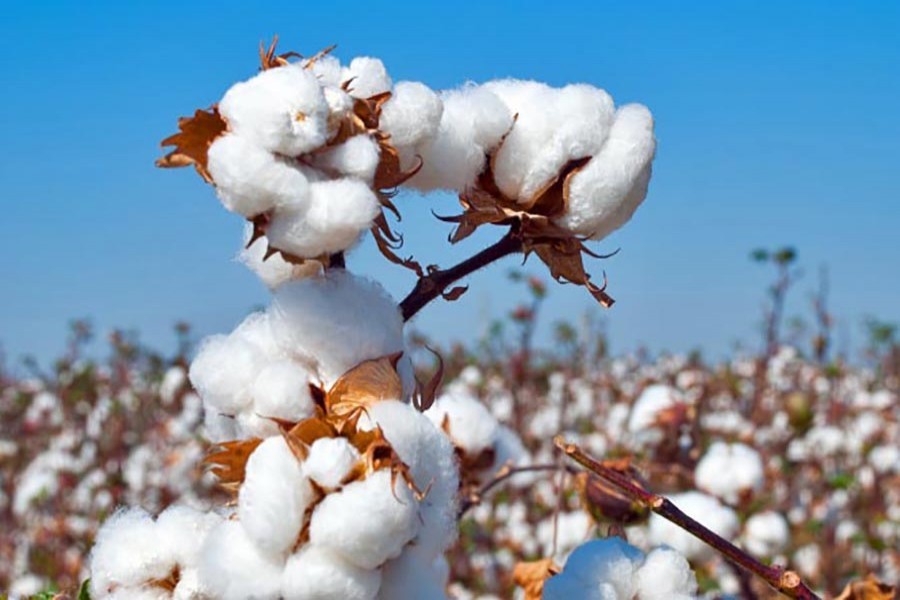Cotton prices may remain stable in the days ahead and there is no possibility of a dramatic change immediately, exporters predict to rule out further market volatility of the much-needed clothing raw material.
"…from our view we see that the market is fairly stable. We don't see anything from the horizon that can cause dramatic changes in the near term," said Wesley Rentz, Senior Director for Southeast Cotton Operation of Olam Cotton.
In November last year, the cotton price hit a rock-bottom level of USD 0.70 per pound amid the pandemic disruptions but surged up to $1.20 a pound now in the wake of global economic rebound.
Talking to a group of journalists Tuesday at a Dhaka hotel he said the most important thing in the market is price stability. "If price has any dramatic swings, then the supply chain could have an impact."
Mr Rentz is now visiting Bangladesh as a member of a delegation of the Cotton Council International (CCI), the export-promotion arm of the National Cotton Council of America (NCC).
CCI Director, Supply Chain Marketing, South and South East Asia, William R Bettendorf, Head of CCI Technical Service Joerg Bauersachs and Country Representative of Cotton USA Ali Arsalan also spoke at the event.
They said Bangladesh is a market of 2.0 million cotton bales and is very important for the US traders due to the spectacular growth of its textile industry over the last 20 years.
Moreover, Bangladesh's spinning industry is heavily dependent on imported cotton and the country tops the list of nations dependent on cotton import.
They further said although China now became largest importer of cotton, Bangladesh, being the second-largest cotton importer, is still important and a large market for US cotton.
On the current state of global cotton trade, they said the pandemic has caused unprecedented disruptions to the supply chains and markets for the US and world cotton and textile industries. The global outbreak resulted in disruptions to all US cotton-export markets, with forced closures for many factories and/or drastic reductions in orders and cancellations for others.
Though post-lockdown scenario is a bit on the positive side, the US cotton has managed to obtain 14-per cent market share of the total cotton import of Bangladesh, they noted.
Regarding sustainable value-creation activities for the merchants in Bangladesh, the delegation members said the US cotton has introduced USCTP (US Cotton Trust Protocol) which is a unique programme and offers complete solutions to the mills. There are events like cotton day for the merchants and programme where mill owners open their door for other mills, so that they can understand and know the process better.
Amid cotton-rate increase, the US Cotton is holding Mill Mastery Courses which can help buyers to understand tools such as hedging or price discovery, presentations on things such as the world cotton supply and demand, US cotton production update and updates on shipping costs and logistical challenges.
"We don't have a crystal ball but we believe mills can make better decisions, when they have the right information in front of them," said a member of the delegation.
About the absence of a deep-sea port in Bangladesh, they said this is causing a great hamper to the apparel industry. As there is a delay in the product receiving, the action plan gets stuck.
On cotton-fumigation process at Chittagong port, they said the US government and the US department of agriculture had tried extensively over the years for solving the issue.
This problem is actually affecting the local industries. It is the mill owners that are paying the charges and facing the delays due to fumigations, they added.
Recently, the Animal and Plant Health Inspection Service (APHIS) of the USA offered to provide an additional decoration of each shipment of US cotton. This will certify the purity of each batch, no matter the amount of the shipment.
"We are doing our best to support our merchant but the ball is pretty much in court of Bangladeshi authority as to how they want to deal with this matter," said another member of the team.


